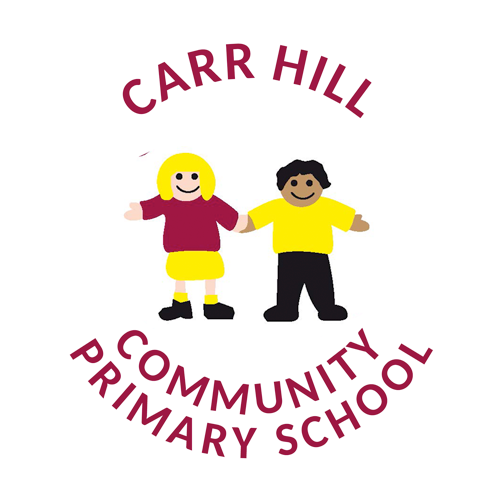Mrs Oliver leads the teaching of Modern Foreign Languages in School.
Our intent for Modern Foreign Languages
At Carr Hill, the intention of our MFL curriculum is to develop an interest in and thirst for learning other languages and to provide all our children with a high-quality education in Modern Foreign Languages (MFL), which develops their love of learning about other languages and cultures. We aim to introduce the learning of the French language and the understanding of its culture in enjoyable and stimulating ways. We hope to embed the essential skills of listening, reading, speaking and writing. We aim to build the children’s ‘culture capital’ so that they are aware of similarities and differences between cultures. In short, we hope to lay the foundations for future language learning. It is our intention to ensure that by the end of our children’s primary education, they have acquired an understanding of both spoken and written French, confidence to speak in French with others and know how important other languages can be in their future.
Our Implementation for Modern Foreign Languages
Our MFL curriculum is designed to develop not only our children’s language skills, but also their love of learning a language. It progressively develops language skills, through regularly taught lessons. This allows the children to acquire new language then use and apply it in a range of different scenarios and topics. Children are encouraged and supported to develop their speaking and listening skills through conversational work, singing activities and games. As their confidence and skill grows, children record their work through pictures, captions and sentences. We are currently using the ‘Twinkl Planit’ scheme of work to deliver our French lessons. These ensure children acquire a bank of vocabulary organised around topics. They ensure development is progressive as they build on previous knowledge from units already studied. All children in KS2 are taught French in a weekly discreet lesson. This is delivered by the class teacher. KS1 children are introduced to MFL through exploring other languages informally when studying another country. We are also focusing on French outside the classroom.
Our Impact for Modern Foreign Languages
Our MFL curriculum will ensure all pupils develop key language learning skills set out by the national curriculum, as well as a love of languages and learning about other cultures.
These are as follows:
- understand and respond to spoken and written language from a variety of authentic sources
- speak with increasing confidence, fluency and spontaneity, finding ways of communicating what they want to say, including through discussion and asking questions, and continually improving the accuracy of their pronunciation and intonation
- can write at varying length, for different purposes and audiences, using the variety of grammatical structures that they have learnt
- discover and develop an appreciation of a range of writing in the language studied
Purpose of study
Learning a foreign language is a liberation from insularity and provides an opening to other cultures. A high-quality languages education should foster pupils’ curiosity and deepen their understanding of the world. The teaching should enable pupils to express their ideas and thoughts in another language and to understand and respond to its speakers, both in speech and in writing. It should also provide opportunities for them to communicate for practical purposes, learn new ways of thinking and read great literature in the original language. Language teaching should provide the foundation for learning further languages, equipping pupils to study and work in other countries.
Aims
The national curriculum for languages aims to ensure that all pupils:
- understand and respond to spoken and written language from a variety of authentic sources
- speak with increasing confidence, fluency and spontaneity, finding ways of communicating what they want to say, including through discussion and asking questions, and continually improving the accuracy of their pronunciation and intonation
- can write at varying length, for different purposes and audiences, using the variety of grammatical structures that they have learnt
- discover and develop an appreciation of a range of writing in the language studied
Subject content
Key stage 2: Foreign language
Teaching may be of any modern or ancient foreign language and should focus on enabling pupils to make substantial progress in one language. The teaching should provide an appropriate balance of spoken and written language and should lay the foundations for further foreign language teaching at key stage 3. It should enable pupils to understand and communicate ideas, facts and feelings in speech and writing, focused on familiar and routine matters, using their knowledge of phonology, grammatical structures and vocabulary.
The focus of study in modern languages will be on practical communication. If an ancient language is chosen, the focus will be to provide a linguistic foundation for reading comprehension and an appreciation of classical civilisation. Pupils studying ancient languages may take part in simple oral exchanges, while discussion of what they read will be conducted in English. A linguistic foundation in ancient languages may support the study of modern languages at key stage 3.
Pupils should be taught to:
- listen attentively to spoken language and show understanding by joining in and responding
- explore the patterns and sounds of language through songs and rhymes and link the spelling, sound and meaning of words
- engage in conversations; ask and answer questions; express opinions and respond to those of others; seek clarification and help*
- speak in sentences, using familiar vocabulary, phrases and basic language structures
- develop accurate pronunciation and intonation so that others understand when they are reading aloud or using familiar words and phrases*
- present ideas and information orally to a range of audiences*
- read carefully and show understanding of words, phrases and simple writing
- appreciate stories, songs, poems and rhymes in the language
- broaden their vocabulary and develop their ability to understand new words that are introduced into familiar written material, including through using a dictionary
- write phrases from memory, and adapt these to create new sentences, to express ideas clearly
- describe people, places, things and actions orally* and in writing
- understand basic grammar appropriate to the language being studied, including (where relevant): feminine, masculine and neuter forms and the conjugation of high-frequency verbs; key features and patterns of the language; how to apply these, for instance, to build sentences; and how these differ from or are similar to English
Planning
Here are our MFL overviews which outline what topics each year group will be covering.
Year 4
Year 5
Year 6

